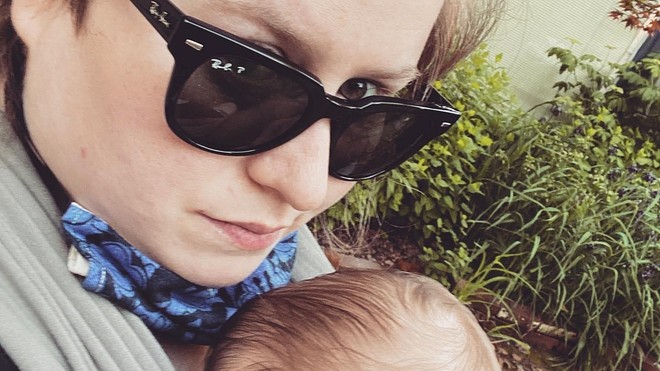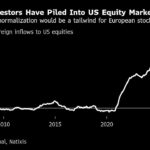Bridgette Reynard has a new habit since losing her old job.
Right before the 28-year New Orleans resident falls asleep, she checks for updates about stimulus talks on Capitol Hill. And when she wakes up, she checks her Apple AAPL, -1.40% iPad for the latest news about the same topic.
She and many others learned Oct. 6 that President Donald Trump was ending White House participation in talks on a second round of stimulus. In March, Trump signed the first stimulus package, the $2.2 trillion CARES Act, which authorized direct payments of up to $1,200 to most Americans and an extra $600 in federal weekly unemployment benefits for people who had been laid off.
The president later said on Twitter TWTR, -0.47% that he would be open to certain portions of a deal. Treasury Secretary Steven Mnuchin and House Speaker Nancy Pelosi resumed talks, and by Thursday the president said discussions were “very productive.” Later in the day, Pelosi said she wasn’t interested in piecemeal deals, while Senate Majority Leader Mitch McConnell said a bargain before Election Day was “unlikely.” As of Friday, Trump reportedly had a $1.8 trillion offer on the table.
Pelosi’s House passed a $3 trillion relief package called the HEROES Act in May, but McConnell failed to acknowledge the legislation before the Senate left on its summer hiatus, nor after.
Trump’s proposal received a chilly reception on both sides of the aisle over the weekend. “This proposal amounted to one step forward, two steps back,” Pelosi wrote in a Saturday letter to colleagues. A Republican source told the Associated Press the $1.8 trillion offer had been criticized during a conference call on Saturday attended by GOP senators.
Outside the Beltway, the negotiation twists and turns are leaving Reynard and others in limbo at a precarious point.
Most of the stimulus checks have long been disbursed and the supplemental federal benefits ended in July. A $300 unemployment benefit funded via a reallocation from the Federal Emergency Management Agency by a Trump executive action recently ended, too.
The U.S. unemployment rate in September was 7.9%. That’s off the double-digit rates of the spring amid the pandemic’s initial shock wave. But September marked the smallest gain in employment since state economies started reopening; 700,000 people left the workforce because jobs are scarce.
When travel and tourism dried up by late March, Reynard lost her job supervising crews that cleaned Airbnb rentals. She used her stimulus check and unemployment benefits to pay her rent and utility bills while unsuccessfully looking for jobs at gas stations, hospitals and elsewhere.
“ ‘It really brings me into a depression not knowing my next move.’ ”
“It really brings me into a depression not knowing my next move,” Reynard said.
Meanwhile, coronavirus infections continue. Heading into this weekend, 7.6 million Americans had been sickened by the virus, with flu season is approaching.
Coronavirus update:Doctors and scientists take aim at herd immunity, calling it ‘nonsense’ and a ‘nebulous’ idea
With another stimulus check or more supplemental unemployment benefits, Reynard said she could start looking around for a one-bedroom apartment where she and her son could stay. When Reynard couldn’t afford rent and her landlord served her with a notice to vacate — despite a national eviction moratorium — Reynard and her 9-year-old moved in with her mother.
Without more stimulus money, Reynard said, “I feel like we’ll be trapped in this situation forever.”

Christine Gaydos, a 31-year-old new mother and stagehand in In New Castle, Del., has been out of work since March and has watched her monthly household income drop from approximately $6,000 to $1,420.
courtesy of Christine Gaydos
In New Castle, Del., 31-year-old Christine Gaydos, a new mother and stagehand who’s been out of work since March, has watched monthly household income drop from approximately $6,000 to $1,420.
Gaydos used her stimulus money for pregnancy-related hospital bills and household necessities. “I used that money to keep us afloat.”
Another stimulus check for her and her husband wouldn’t be a huge sum of money in the bigger picture, she recognized. Still, “that money would be such padding. It really would just feel like a safety net. … When you’ve already stretched yourself so thin, that would be enough to make sure we’re OK. We don’t have to worry so much about everything.”
“ ‘When you’ve already stretched yourself so thin, that would be enough to make sure we’re OK. We don’t have to worry some much about everything.’ ”
Right now, Gaydos does worry about everything — right down to how much it will cost to buy solid baby food as her infant daughter grows.
Without any more fiscal relief from federal lawmakers, Gaydos said, “things are going to get a lot harder for a lot longer.” She might have to skip credit-card bills, she said. “Whatever I can get away with not paying, I’m not going to pay.”
Gaydos’s career is based in Philadelphia, where the local arts scene follows New York City’s lead, she said. Broadway curtains won’t be rising until June 2021 at the earliest.
Gaydos at one point at least said expected a deal on a second stimulus package. She wasn’t alone. Recent stock-market peaks and valleys have been fueled by such shifting deal expectations.
Still, Gaydos said she felt “dumb” for her expectations. “I feel like the girl that keeps on going back to the guy that’s a piece of crap to her.”
It’s a sad state of affairs when that’s the way she feels about lawmakers, Gaydos said. “We should expect more, because we elected them to a position of trust and authority.”
What’s the right approach?
Hours before Trump said he was pulling the plug on stimulus talks, Federal Reserve Chairman Jerome Powell had said the population needed more fiscal support from Congress. “Too little support would lead to a weak recovery, creating unnecessary hardship for households and businesses,” he said.
See also:Frontline workers in eye of pandemic storm for months, now fending off repo man
Seventy percent of Americans say the federal government should write another round of direct checks, according to a Gallup poll released last month. Eighty-two percent of Democrats in the 5,000-person poll said that was the right thing to do, while 64% of Republicans and 66% of independents agreed.
A new study by the J.P. Morgan Chase Institute and the University of Chicago of 80,000 unemployed people found that savings built up when the government provided aid is, for most, running out. Median family savings reportedly doubled during the period when the federal government was actively helping to cushion the pandemic’s impact, according to the researchers, but those savings were being drained by August.
“The cushion has worn thin, and we haven’t yet regained all the jobs that we lost,” said Fiona Greig, director of consumer research for the J.P. Morgan institute, according to an NPR report. “This is a critical time for jobless workers.”
Key Words:U.S. will eventually experience ‘the normal effects of recession,’ says J.P. Morgan’s Jamie Dimon
More checks are popular with the public, but Adam Michel, senior policy analyst at the conservative-leaning Heritage Foundation, doesn’t agree.
A wide-ranging, broad-spending stimulus package isn’t the answer, he said. Stimulus checks may go to people in need, but they would also go to people who are employed and in more comfortable positions. Higher-income households tended to save their economic impact payments, one study suggested.
“ ‘Our children have to pay for stimulus check I get and put in the bank account. … It’s a waste of those future resources, and it ultimately takes away from the aid of people who need it.’ ”
“Our children have to pay for stimulus check I get and put in the bank account,” Michel said. “It’s a waste of those future resources, and it ultimately takes away from the aid of people who need it.”
Michel does agree with more government assistance for people who are unemployed, people like Reynard and Gaydos. “That’s the type of targeted measure that does make sense right now,” he said.
But others say that with an estimated 33 million workers being harmed by the pandemic-induced economic slowdown, “It is terrible economics to pause stimulus talks.” That’s according to Heidi Shierholz, senior economist and director of policy at the liberal-leaning Economic Policy Institute.
She wrote that “the extra $600 in weekly UI benefits was supporting a huge amount of spending by people who, without it, have to make drastic cuts. The spending made possible by the $600 was supporting millions of jobs. Cutting that $600 means cutting those jobs.”
‘We need that help’
Back in New Orleans, Reynard continues to keep an ear open to the fits and starts of talks in Washington.
“We need that help. I feel like we deserve it because we didn’t put ourselves in this situation,” she said.
Gaydos said “financial anxiety” is setting in — and that’s despite the fact she was able to put aside a little in savings during the first round of stimulus, like many of those identified in the J.P. Morgan–UChicago research project, and also got some financial help from her family.
“I’m terrified, frankly. I try to keep a positive outlook, and I try to remember this is only temporary and we try to figure it out,” she said. “It’s still scary, and I’m not even the worst off. There are millions more like me. It seems like people like us are getting forgotten about right now.”





